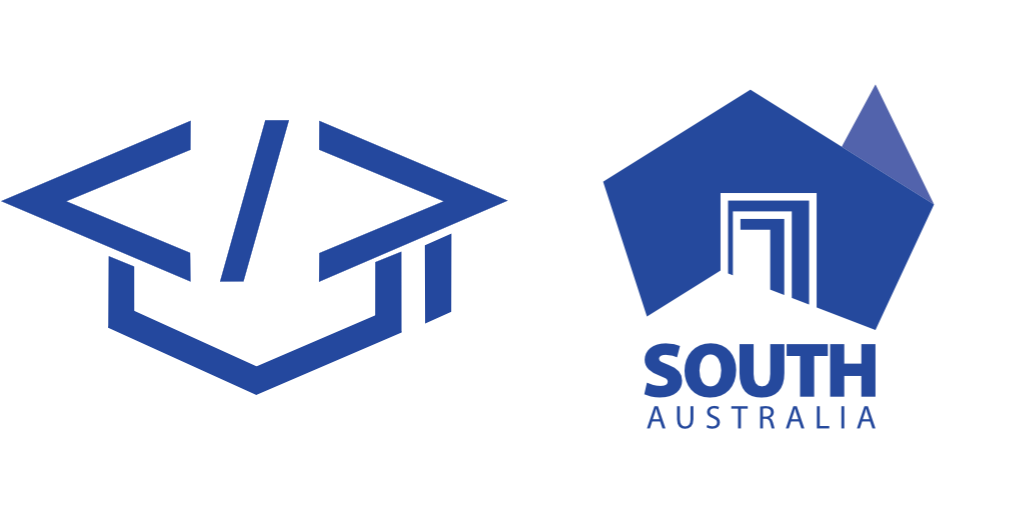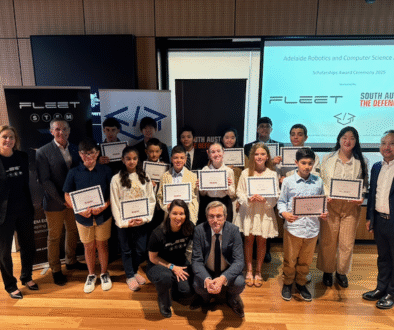Degrees Vs. Skill Stacks: What Prepares You For The AI Economy?
University used to be the default launchpad for success. But in a world increasingly shaped by artificial intelligence, automation, and rapidly evolving industries, that formula is shifting. Today’s students and their parents are asking a new question: Does a degree still guarantee a future-proof career?
The answer is increasingly nuanced. While specific degrees remain valuable, especially in fields such as engineering, healthcare, and data science, a growing number of young people are adopting a “skill stack” approach to education. That means pairing classroom learning with real-world experience, like earning certifications, interning, or launching a business to create a resume that reflects today’s evolving job market.
Skill Stack With Artificial Intelligence
A skill stack refers to a personalised combination of marketable skills, credentials, and experiences that can evolve in response to emerging trends and market demands. For Gen Z and Gen Alpha, that might look like:
- A digital marketing certification from Google or HubSpot
- An internship at a tech startup, nonprofit, or innovative company
- A side hustle built using AI tools like ChatGPT, Midjourney, or Canva
- Participation in an entrepreneurship program that develops real-world business skills
- University coursework or a degree in a field with strong crossover potential, like human-computer interaction, behavioural science, or data analytics
It’s not about abandoning formal education; it’s about supplementing it with real-world experience, adaptability, and proof of initiative.
Traditional Credentials vs. Artificial Intelligence
The job market is undergoing a significant transformation as employers increasingly prioritise practical AI skills. This shift is evident in hiring practices across the tech industry and beyond, with a growing emphasis on demonstrated expertise and hands-on experience.
According to McKinsey’s 2024 AI Workforce Report, job postings for AI-related roles grew by 21% as a share of total listings between 2018 and mid-2024, underscoring the surging demand for AI talent with real-world capabilities. Leading companies such as Google, IBM, and Apple are at the forefront of this movement, frequently hiring candidates based on their skills, project portfolios, and industry-recognised certifications rather than traditional degree requirements.
Google’s career certificates can be completed in just three to six months, offering a fast and practical pathway into high-demand AI roles. This trend reflects a broader industry consensus: in a rapidly evolving field like AI, up-to-date skills and proven problem-solving abilities are often valued more highly than conventional academic credentials.
The AI Skills That Matter Most
According to the World Economic Forum’s 2025 Future of Jobs Report, AI and big data are at the top of the list of most in-demand skills, followed by network cybersecurity and technological literacy. However, the most crucial AI skills aren’t just technical; they’re about working alongside artificial intelligence, rather than being replaced by it.
A study published in Semantic Scholar (2023) revealed that AI skills command a wage premium of 23%, surpassing the value of degrees up to the PhD level. This premium reflects the high demand for professionals who can work effectively with AI systems across industries.
The most in-demand AI-adjacent skills include:
- Technical fluency without deep programming expertise: Understanding how to use AI tools like ChatGPT, Midjourney, or automation platforms rather than building them from scratch. Python programming dominates the skill sets most in demand, with data science, computer vision, and natural language processing (NLP) following closely. Still, students don’t need to become machine learning engineers to benefit from AI literacy.
- Prompt engineering and AI collaboration: Knowing how to communicate effectively with AI systems to generate useful outputs. This skill is becoming as valuable as traditional research or writing abilities.
- Data interpretation and critical thinking: Creative thinking, resilience, flexibility, and agility are also gaining importance, along with curiosity and a lifelong learning approach, as well as the ability to analyse AI-generated insights and make informed strategic decisions based on them.
- Human-AI workflow design: Understanding how to integrate AI tools into existing processes to amplify human capabilities rather than replace them.
Beyond Tech: AI Skills Across Industries
The skill stack approach isn’t limited to tech companies; it’s reshaping hiring across sectors as AI integration accelerates.
In healthcare, medical professionals are increasingly valued for their ability to work with AI diagnostic tools and telemedicine platforms. A nursing degree combined with certifications in health informatics creates competitive advantages that traditional education alone cannot provide.
Marketing teams seek professionals who understand both creative strategy and AI-powered content creation tools. Financial firms seek employees who understand traditional principles while leveraging AI for risk assessment and algorithmic analysis.
Even manufacturing companies now prioritize workers who combine industry knowledge with AI tool proficiency for predictive maintenance and quality control. This cross-industry demand explains why the skill stack approach is gaining traction regardless of the chosen field.
Why Employers Are Rethinking AI Requirements
The shift away from degree-first hiring isn’t happening in isolation. Several converging forces drive it:
Skills become obsolete faster: A computer science degree from 2020 may already be outdated in certain areas, while someone who learned current AI tools last month has more relevant capabilities.
Portfolio work demonstrates ability: A GitHub repository showing actual projects, a business that generated revenue, or case studies from internships provide concrete evidence of capabilities that transcripts cannot.
Remote work changes evaluation: When hiring for distributed teams, managers prioritise demonstrated communication skills and self-direction over a candidate’s educational background.
Building Your AI-Ready Skill Stack
Nearly 70% of recent graduates report needing additional training on emerging technologies, particularly generative AI, and a majority of employers expect new hires to possess foundational AI knowledge.
For students and parents thinking about how to prepare for an AI-driven future, it comes down to being intentional about what you learn and how you apply it. The strongest approach often combines a college degree with targeted certifications and real-world experience, providing students with both a solid foundation and the flexibility to adapt as technology continues to evolve.
Start with foundation skills: Strong communication, problem-solving, and collaboration abilities remain essential. These human skills become more valuable, not less, in an AI-driven workplace.
Add technical literacy: Learn to use current AI tools effectively. This means understanding how to leverage automation, create effective prompts, and interpret insights generated by AI.
Gain real-world experience: Pursue internships, launch projects, or start small businesses that let you apply skills in authentic contexts. Document these experiences through portfolios, case studies, or demo reels.
Pursue targeted certifications: Industry-recognised credentials from Google, Amazon, Microsoft, or specialised platforms often carry more weight than general degrees for specific roles. Programs offering hands-on, industry-recognised certifications are increasingly recognised as credible alternatives to formal education.
Build continuously: The half-life of specific technical skills is shrinking. Develop the habit of continuous learning and adaptation.
What Parents Should Be Asking
Instead of “What’s the best major?” parents might consider these questions:
- What problems is my teen genuinely motivated to solve?
- What projects can they build to demonstrate initiative and capability?
- What mentors or activities can support their skill development?
- How can they gain experience while still in high school?
- What combination of formal education and practical experience makes sense for their goals?
The answer isn’t to abandon University altogether, degrees still matter in many fields and remain essential for specific career paths. The students who excel are those who view education as more than just a diploma. They approach it with a broader lens, mixing classroom learning with hands-on experience and building specific skills.
Success With Artificial Intelligence
The AI economy rewards those who can adapt, create, and solve problems in partnership with intelligent systems. Whether that preparation occurs through a degree, intensive bootcamps, certificate programs, launching entrepreneurial ventures, or some combination depends on individual goals and learning styles.
What matters most when it comes to artificial intelligence and developing your AI skills is starting early, staying curious, and building a track record of real accomplishments. In a world where change is the only constant, the ability to learn, apply, and create value becomes the ultimate competitive advantage.




